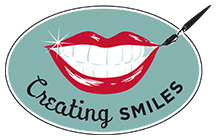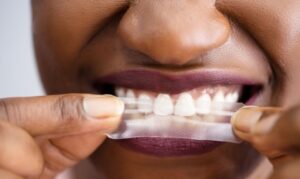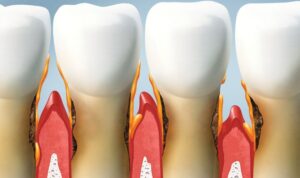Emergencies are unplanned, and prompt and educated action is essential for dental problems. Knowing what to do in a dental emergency can save oral health in cases ranging from knocked-out teeth to acute toothaches. Let’s look at emergency dental treatment, including typical scenarios, what to do immediately, and how technology is used in contemporary dentistry.
Introduction
- Definition of Emergency Dental Care: When discussing emergency dental treatment, we discuss circumstances that call for quick action to treat oral health problems. These circumstances frequently entail acute discomfort, harm, or the possibility of long-term harm if urgent medical attention is not given.
- Importance of Prompt Action: In contrast to other health concerns, dental diseases can worsen rapidly, and putting off treatment might cause lasting harm. Not only is it helpful to know the fundamentals of emergency dental treatment, but it is also necessary.
Common Dental Emergencies
- Knocked-Out Tooth: The most concerning scenario is when a tooth is knocked out. It’s important to get the tooth out and act quickly, regardless of whether it was caused by an accident or a sporting injury.
- Toothache: A toothache can be quite painful. In trying times, knowing how to control the pain at home until aid arrives from a professional may be relieving.
- Broken or Chipped Tooth: Accidents may happen, and having a chipped or broken tooth can hurt and raise questions before you can consult a dentist and learn how to address this scenario.
- Lost Filling or Crown: Sensitive tooth regions may become visible due to a missing filling or crown. It is possible to stop more damage by learning how to shield the tooth temporarily.
Immediate Steps to Take
- Retrieving a Knocked-Out Tooth: When a tooth is knocked out, gently remove it using the crown rather than the root. Till you can visit a dentist, carefully rinse it, try to put it back in the socket or preserve it in milk.
- Managing Toothache at Home: When you have a toothache, use warm water to rinse your mouth, gently floss to remove debris, and take over-the-counter pain medicines if necessary.
- Dealing with a Broken or Chipped Tooth: See a dentist right away if you break or chip a tooth. You should also rinse your mouth and use a cool compress to minimize swelling.
- Handling a Lost Filling or Crown: Use dental cement or sugar-free gum to temporarily cover the exposed region if you have lost fillings or crowns. Seek expert assistance as soon as possible.
Emergency Dental Care Do’s and Don’ts
- Do Call Your Dentist: Call your dentist right away in case of any dental emergency. They may set up an appointment for you and offer advice over the phone.
- Don’t Ignore the Problem: Ignoring dental problems might result in more serious ones. Timely intervention can prevent tooth loss and reduce discomfort.
- Do Keep the Area Clean: Even in an emergency, practice good dental hygiene. To avoid infection and other problems, keep the afflicted region clean.
- Don’t Use DIY Fixes: Steer clear of do-it-yourself repairs with superglue or temporary dental products. These can complicate medical care and do more damage than good.
What to Expect at the Emergency Dentist
- Evaluation of the Situation: When you get to the emergency dentist, you may anticipate having your case thoroughly assessed. X-rays might be obtained to evaluate the degree of the injury.
- Possible Treatments: Different treatments apply depending on the emergency. Your dentist will advise on the best action, from dental bonding to extractions.
- Post-Emergency Care Instructions: Pay close attention to the advice given by your dentist after undergoing treatment. This might entail prescription drugs, certain dental hygiene practices, or follow-up visits.
Emergency Dental Care Do’s and Don’ts
- Regular Dental Checkups: The key is prevention. Frequent dental examinations can assist in detecting any problems before they develop into serious ones.
- Wearing Mouthguards: Mouthguards can safeguard those who play sports or engage in other activities with a chance of dental harm.
- Avoiding Certain Foods and Activities: Avoiding behaviors that might endanger your teeth and watching what you eat will help you avoid dental crises.
The Role of Technology in Emergency Dentistry
- Tele-Dentistry: Tele-dentistry has been a useful technique in recent years. Through remote consultations, dentists may evaluate urgent cases and offer preliminary advice.
- Online Consultations: Digital platforms allow people to consult dentists online, providing quick and easy support.
- Advancements in Dental Technology: Modern technological developments like 3D printing for dental prostheses help provide emergency dental care that is more accurate and efficient.
Overcoming Dental Anxiety
- Importance of Open Communication: Dental anxiety is widespread. A more pleasant encounter may result from discussing your worries and issues with your dentist openly and honestly.
- Sedation Options: Sedation treatments are available for individuals experiencing extreme anxiety. To determine your best course of action, go over these with your dentist.
- Creating a Comfortable Environment: Dental offices are putting more and more effort into making their spaces cozy and inviting to reduce patient anxiety.
Cost of Emergency Dental Care
- Insurance Coverage: Verify the emergency coverage provided by your dental insurance. Comprehending the scope of coverage might aid in your financial planning.
- Financing Options: Ask your dentist about financing alternatives if you don’t have insurance. To increase accessibility to emergency treatment, several provide payment arrangements.
- Importance of Prioritizing Oral Health: Putting money into dental health means putting money into general well-being. Regular checkups should be prioritized to avoid crises and save long-term expenses.
Real-Life Emergency Dental Care Stories
- Personal Experiences: Real-life accounts from people who have had dental emergencies can be enlightening and consoling.
- Lessons Learned: Find out what can be gained from these experiences and how people have modified their dental hygiene practices.
- Encouragement for Others: A word of encouragement may go a long way during trying times. Find out how other people handled dental crises and came out on top.
The Future of Emergency Dental Care
- Continuous Improvements: Be prepared for ongoing advancements in dental emergency treatment. Technological and methodological developments will improve available treatments.
- Integration of Technology: Technology will become increasingly essential to emergency dental care by providing creative ways to diagnose and treat patients.
- Accessibility for All: Regardless of geography or financial situation, everyone will have easier access to emergency dental treatment.
Conclusion
It’s crucial to respond quickly and intelligently during dental crises, especially when seeking an emergency dentist. Knowing what to do in an emergency and how technology plays a part in contemporary dentistry are just two examples of how being knowledgeable helps you handle these circumstances with assurance. Recall that getting expert assistance as soon as possible can help maintain your total well-being, of which your oral health is essential.
FAQs
What qualifies as a dental emergency?
Severe toothaches, knocked-out teeth, and fractured teeth are dental emergencies that need prompt care to stop more harm.
Can I use over-the-counter pain relievers for toothaches?
Indeed, you can get temporary relief from dental discomfort using over-the-counter pain medicines. However, to find a long-term solution, expert assistance is imperative.
How much does emergency dental care typically cost?
The type of emergency and the necessary treatment determine how much emergency dental care will cost. Certain expenses may be covered by dental insurance.
Is tele-dentistry effective for emergencies?
In an emergency, tele-dentistry might be useful for preliminary evaluations and advice. Nonetheless, in-person assessment is frequently required for all-encompassing care.
What should I do if I can’t reach my regular dentist in an emergency?
Consider going to the closest emergency dental clinic or calling a dentist on call if you cannot contact your usual dentist. Careful attention to detail is necessary.






